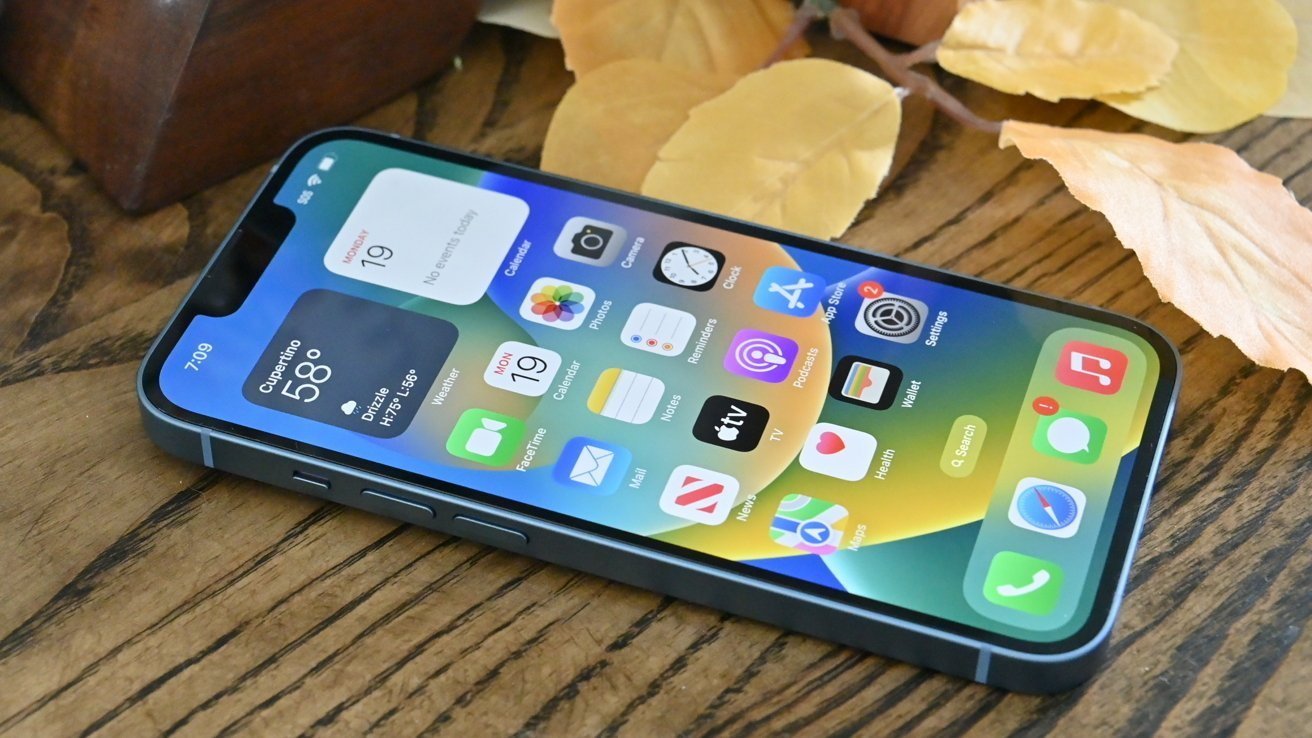A letter has been sent from Congress to the Department of Defense claiming China's subsidizing of display producers is a security risk to the US, with an endgame that could result in forcing Apple to change its supply sources.
Apple's global supply chain relies on multiple companies to provide displays for its iPhones, iPads, and Macs. However, while Chinese producer BOE has had a troubled existence within the supply chain, its status may become a little tougher to maintain.
John Moolenaar (R-MI), chairman of the House Select Committee on the Chinese Communist Party, has written to Defense Secretary Lloyd Austin about China's subsidization of display producers. The letter, released on Tuesday, takes specific aim at BOE Technology Group and Tianma Microelectronics, and the possibility they could become a national security threat.
In the letter, Moolenaar insists the People's Republic of China (PRC) "engages in aggressive state-sponsored subsidization of the two primary display technologies: liquid crystal display (LCD) and organic light-emitting diode (OLED) display." The subsidies help push other companies not aided by subsidies from the market, and increases the PFCs "dominance in the industry."
Referring to the two manufacturers, Moolenaar goes on to insist they "are tied to the People's Liberation Army (PLA) and support its efforts." It adds that BOE was originally founded in 1993 "as a military and defense supplier," and a subprime contractor for the PLA, it has supplied to other PLA suppliers, including HiSense.
Moolenaar requests that the Pentagon deems both COE and Tianma as a threat, and to place them on the DoD 1260h blacklist as Chinese military companies.
Existing on the list can be troublesome for identified firms, as well as their clients. For example, the list can be used to impose sanctions on the companies, limiting their trading capabilities with the United States.
If the DoD does act on the letter's demand and actually places BOE on the blacklist, it could cause problems for part of its display supply chain.
While BOE has had issues with entering Apple's supply chain, with it limited to small orders of panels over the years, it has been identified as a potential supplier for the iPhone SE 4, though even that is questionable.
The blacklist inclusion could become a problem if Apple uses BOE more in the future. Sanctions could end up affecting imports of some of its products into the United States, or use in finished goods intended for the US market.
However, since Apple uses multiple display sources, it would be a problem that could be countered simply by increasing orders to other component vendors.
It already uses Samsung Display and LG Display as the main two suppliers for its product lines. With the size of existing orders with the two companies, it seems feasible that they could absorb extra orders from Apple if it had to move away from BOE.
 Malcolm Owen
Malcolm Owen







-m.jpg)






 Andrew Orr
Andrew Orr
 Amber Neely
Amber Neely
 Marko Zivkovic
Marko Zivkovic
 William Gallagher and Mike Wuerthele
William Gallagher and Mike Wuerthele



 Mike Wuerthele
Mike Wuerthele









5 Comments
Way to go just noticing this now…
Send that same letter to Elon Musk talk to him first nothing says, helping like having that huge Tesla building with the name of your company on it.
BOE is used but Samsung and LG are used a lot more, BYD probably will be the biggest car manufacturer in the world thanks to you know who with the help of the west, the genie is out of the bottle (50 years) and the bull is out of the barn the Chinese are selling everywhere in the world, high-speed rail to the Indonesians finished and running, high-speed rail to the Serbians and the Hungarians by the way, that will up and running in 2025, the Romanians made a mistake of listening to the west Europeans and their high-speed rail system is still on the drawing board being discussed.
https://www.railway.supply/en/budapest-bucharest-breakthrough-in-high-speed-rail-new-details-and-project-costs/ ?? still planning……
https://www.railway-technology.com/projects/belgrade-budapest-railway-project-europe/?cf-view China seems to get things done my fellow Americans and EU like talking about it.
The only way to compete with the Chinese is actually building infrastructure within a your own country, stop complaining, posturing, and sanctioning and just get busy and build it, oh and building cheap factories south of the border repeating the China (50 years cheap of labor) mistakes in Mexico ain’t gonna do it. China isn’t incompetent like Russia…
Time will tell, but I don’t see Americans business or consumers accepting first world prices for wages, goods and services throughout the pipeline, bringing it all back on shore will mean 25% to 33% increases for everything. Something closer to EU levels of pricing and that also includes no migrant workers oh no…..
Isn't Boeing and all kinds of tech and Aero companies tied directly to our Dept. of Defense? Just asking if other countries will also see this danger and stop buying products from them. Interesting.
Mind you I am no defender of Chinese anything. But I just wonder how is it that we sell China just about anything: from cars to soy beans. Unfettered. Unlimited. As soon as the Chinese counter we put all these barriers starting with: 'the Chinese government is using chopsticks and fortune cookies to spy on the US; or (this is in Europe where the Europeans have sold millions of cars in China) now that the Chinese EV makers are taking a big bite out of the European market. STOP. The Chinese cars are a Chinese government Trojan horse. Or the prices are artificially low; or (fill in the blanks). Hey, they way I see it, if you want to sell to China, they are going to want to sell to us. Otherwise it is not free trade if it is just one way.